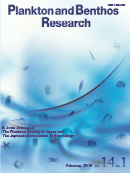
Plankton & Benthos Research
Scope & Guideline
Exploring the Depths of Aquatic Ecosystems
Introduction
Aims and Scopes
- Biodiversity and Taxonomy:
Research on the identification, classification, and diversity of aquatic organisms, including invertebrates, zooplankton, and benthic communities, with a focus on new species descriptions and genetic studies. - Ecological Interactions:
Studies that explore the relationships between different species in aquatic ecosystems, including predator-prey dynamics, symbiotic relationships, and community structure. - Environmental Impact Studies:
Investigations into how various environmental factors, such as pollution, climate change, and habitat alteration, affect aquatic organisms and ecosystems. - Population Dynamics and Life Histories:
Research on the population structures, reproductive strategies, and life cycles of marine and freshwater species, emphasizing the effects of environmental changes. - Methodological Innovations:
Development and application of new methodologies, including molecular techniques, to study aquatic ecosystems and enhance species identification.
Trending and Emerging
- Molecular Ecology and Genetic Studies:
An increasing number of papers utilize molecular techniques to investigate genetic diversity and population structure, highlighting the importance of genetic tools in contemporary ecological research. - Climate Change Impacts:
Research focusing on the effects of climate change, such as temperature fluctuations and ocean acidification, on aquatic species and ecosystems is gaining traction, reflecting global environmental priorities. - Microplastics and Pollution Studies:
The rising concern over microplastics and other pollutants in aquatic environments has led to an increase in studies examining their effects on marine and freshwater organisms. - Community and Ecosystem Dynamics:
There is a growing interest in understanding the dynamics of entire ecosystems and communities, including how species interactions and environmental changes drive these processes. - Innovative Aquaculture and Conservation Techniques:
Emerging studies are focusing on sustainable aquaculture practices and conservation strategies that integrate ecological research findings, aiming to balance human activities with ecosystem health.
Declining or Waning
- Invasive Species Research:
While still relevant, the frequency of studies specifically targeting invasive species dynamics has decreased, possibly due to a shift towards broader ecological impacts rather than focusing solely on invasives. - Historical Ecological Studies:
Research that examines historical baselines of ecosystems, particularly in relation to human impacts, has become less prominent, suggesting a shift towards more contemporary ecological assessments. - Traditional Morphological Studies:
The emphasis on traditional morphological approaches to species identification has waned in favor of molecular techniques, leading to fewer publications focused solely on morphological descriptions.
Similar Journals

MARINE BIOLOGY
Leading the Charge in Marine Research ExcellenceMARINE BIOLOGY, published by Springer Heidelberg, is a leading international journal that has served as a crucial platform for the dissemination of research in marine ecosystems since its inception in 1967. With a strong emphasis on the biological aspects of marine environments, this journal stands out in its field, holding a prestigious Q1 ranking in categories such as Aquatic Science and Ecology for 2023. Researchers and academicians will find valuable insights into ecological, evolutionary, and behavioral studies, making it an essential resource for those investigating marine organisms and their interactions. The journal is indexed in key databases and achieves a commendable rank in various Scopus categories, ensuring a broad visibility for published work. As the field of marine biology continues to grow in relevance, particularly in light of environmental changes and biodiversity loss, MARINE BIOLOGY provides an indispensable platform for advancing knowledge and fostering scientific discourse within the global research community.
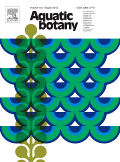
AQUATIC BOTANY
Innovating solutions for aquatic conservation.Aquatic Botany, published by Elsevier, stands as an influential scholarly journal in the fields of Aquatic Science and Plant Science. Established in 1975, this esteemed journal has maintained a strong commitment to advancing our understanding of aquatic plant life, providing a platform for high-quality research that contributes to both ecological awareness and the sustainable management of aquatic ecosystems. With its impact factor reflecting a commendable ranking in the Scopus database—#169 in Plant Science and #95 in Aquatic Science—it is recognized for its valuable contributions to the scientific community, evidenced by its Q2 quartile ranking in both categories as of 2023. The journal does not currently offer open access, ensuring rigorous review and scholarly integrity while being accessible through institutional subscriptions. Set against the backdrop of the Netherlands, Aquatic Botany continues to be a vital resource for researchers, professionals, and students looking to explore the complex interactions between aquatic flora and their environment, aiming to inspire innovative ideas and practical solutions for aquatic conservation and management.

Latin American Journal of Aquatic Research
Unveiling the Wonders of Oceanography and Aquatic ScienceLatin American Journal of Aquatic Research (ISSN: 0718-560X) is a distinguished scholarly publication that has been paving the way for aquatic science research since its transition to Open Access in 2008, allowing unhindered access to diverse scientific inquiries conducted in Latin America and beyond. Published by Pontificia Universidad Catolica de Valparaiso in Chile, this journal serves as a vital platform for researchers and practitioners in the fields of Aquatic Science and Oceanography. With an esteemed Q3 ranking in both categories as of 2023, it is dedicated to disseminating high-quality research findings that address pressing ecological and biological challenges. The journal’s reach and impact are reflected in its Scopus rankings, where it stands at the 36th percentile in Oceanography and the 35th percentile in Aquatic Science. Researchers, professionals, and students alike will find valuable insights and data-driven articles that further the understanding of aquatic ecosystems, making it an essential resource for ongoing studies and future innovations.
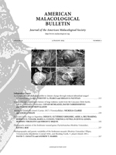
AMERICAN MALACOLOGICAL BULLETIN
Bridging Research and Conservation in Malacology.American Malacological Bulletin is a distinguished journal published by the American Malacological Society, Inc., dedicated to advancing the field of malacology, which encompasses the study of mollusks and their ecological significance. Since its inception, the journal has provided a vital platform for the dissemination of research findings, reviews, and significant contributions from both established and emerging scholars. With an ISSN of 0740-2783 and an E-ISSN of 2162-2698, it holds a global reputation within its niche, albeit recognized within the Q4 category in both Aquatic Science and Ecology, Evolution, Behavior and Systematics based on its 2023 ranking. The bulletin's focus on fostering dialogue and collaboration among researchers around the world underscores its importance within the scientific community. As a resource housed in the Delaware Museum of Natural History, it actively contributes to the ongoing conversation on ecological conservation, biodiversity, and the evolving challenges facing marine ecosystems. Though not classified as an Open Access journal, it remains accessible to scholars and students eager to explore contemporary research in malacology.
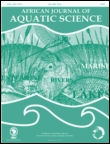
AFRICAN JOURNAL OF AQUATIC SCIENCE
Connecting researchers to the pulse of aquatic ecosystems.AFRICAN JOURNAL OF AQUATIC SCIENCE, published by TAYLOR & FRANCIS LTD, is a premier scholarly journal dedicated to the field of aquatic science, ecology, and environmental management, playing a crucial role in advancing research and knowledge in these vital areas. With an impressive Q2 ranking in both Aquatic Science and Ecology, Evolution, Behavior and Systematics, the journal seeks to publish high-quality research encompassing a wide range of topics related to freshwater and marine ecosystems, including biodiversity, conservation strategies, and the impacts of climate change. Featuring a rich history of publication from 2000 to 2024, the journal not only embraces rigorous peer review but also aims to foster collaboration and dialogue among researchers, practitioners, and students interested in aquatic environments. Readers will find that the journal’s commitment to impactful scientific communication is reflected in its notable rankings within the Scopus database, making it an essential resource for those engaged in aquatic research and management.

BULLETIN OF MARINE SCIENCE
Advancing marine knowledge for a sustainable future.BULLETIN OF MARINE SCIENCE, published by Rosenstiel School of Marine and Atmospheric Science, is a prominent journal dedicated to advancing the field of marine science through scholarly research and peer-reviewed articles. With an ISSN of 0007-4977 and an E-ISSN of 1553-6955, this journal has been contributing to significant scientific discourse since its inception in 1973. Covering a wide spectrum of topics in aquatic sciences and oceanography, it has maintained a respectable position in the academic community, as evidenced by its Q3 ranking in both categories for 2023. Although currently not an open-access journal, it provides essential access to groundbreaking research that informs marine conservation, ecological studies, and atmospheric sciences. Situated in the United States at 4600 Rickenbacker Causeway, Miami, FL 33149, the journal serves as a vital resource for researchers, professionals, and students seeking to engage with the latest findings in marine science and foster a deeper understanding of our oceans.
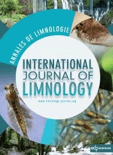
ANNALES DE LIMNOLOGIE-INTERNATIONAL JOURNAL OF LIMNOLOGY
Nurturing the Future of Limnological StudiesANNALES DE LIMNOLOGIE-INTERNATIONAL JOURNAL OF LIMNOLOGY is a distinguished scientific journal dedicated to the field of limnology, focusing on freshwater ecosystems and their ecological dynamics. Published by EDP SCIENCES S A, this journal has been a vital resource for researchers and professionals since 1965, fostering a deep understanding of aquatic environments through quality research and scholarly discussions. The journal was indexed in Scopus, where it ranked in the 37th percentile within the Agricultural and Biological Sciences category, emphasizing its contribution to aquatic science. While its coverage has been discontinued in Scopus since 2021, the journal continues to engage its readership with critical insights and reviews in limnology. ANNALES DE LIMNOLOGIE promotes open access to facilitate the dissemination of valuable knowledge, making it an essential platform for students, researchers, and professionals who strive to advance our understanding of freshwater systems.

BIOLOGY BULLETIN
Bridging Gaps in Biological Research for Global Impact.BIOLOGY BULLETIN is a prominent academic journal published by PLEIADES PUBLISHING INC, dedicated to advancing the fields of Agricultural and Biological Sciences as well as Biochemistry, Genetics, and Molecular Biology. With an ISSN of 1062-3590 and E-ISSN of 1608-3059, the journal has been a vital resource for researchers and professionals since its commencement in 1996. Located in the United States, BIOLOGY BULLETIN operates within a highly competitive academic landscape, achieving a 2023 ranking in the Q3 quartile for Agricultural and Biological Sciences and Q4 for Biochemistry, Genetics, and Molecular Biology, highlighting its commitment to delivering impactful research despite its challenges. Researchers seeking to publish their findings will find a platform for significant insights, as reflected in its Scopus rankings, where it stands at #183 and #199 out of 221 in its respective categories, showcasing opportunities for growth and visibility. While currently not an open-access publication, BIOLOGY BULLETIN plays a crucial role in facilitating scholarly communication and fostering an understanding of biological sciences, making it an essential read for academics, professionals, and students alike.

Tropical Life Sciences Research
Empowering Knowledge in Tropical Ecosystems and MedicineTropical Life Sciences Research, published by PENERBIT UNIVERSITI SAINS MALAYSIA, is an esteemed open-access journal dedicated to the realms of Agricultural and Biological Sciences, Biochemistry, Genetics, and Molecular Biology, and Medicine. Since its inception in 2006, this journal has established itself as a significant platform for disseminating high-quality research findings that contribute to the understanding of tropical biodiversity and health-related issues. With its innovative approach, Tropical Life Sciences Research has garnered an impressive impact factor, reflecting its influence in the academic community; it is ranked Q2 in Agricultural and Biological Sciences and Q3 in both Biochemistry and Medicine categories as of 2023. Researchers and professionals can access a wealth of knowledge through this journal, whose content spans from 2009 to 2024, making it a vital resource for students and experts alike interested in advancing the science of tropical ecosystems and health. The journal also stands out for its comprehensive Scopus rankings, indicating its relevance and quality in the competitive academic landscape.

ACTA ZOOLOGICA BULGARICA
Advancing the Frontiers of Zoological ResearchACTA ZOOLOGICA BULGARICA is a prominent academic journal dedicated to advancing knowledge in the fields of Animal Science, Zoology, Aquatic Science, Ecology, Evolution, Behavior, and Systematics. Published by the Institute of Zoology, Bulgarian Academy of Sciences, this journal serves as an invaluable platform for researchers, professionals, and students to disseminate their findings and engage with contemporary issues in biodiversity and ecology. With an established history since its convergence in 2010 and an ongoing publication schedule through to 2024, the journal holds a Q4 category ranking in multiple disciplines, highlighting its role in fostering scholarly communication in these areas despite its recent entry into Scopus-indexed rankings. Although currently not an open-access journal, ACTA ZOOLOGICA BULGARICA remains a key resource for those interested in the latest research and developments, particularly within the ecological and zoological landscapes of Europe and beyond.